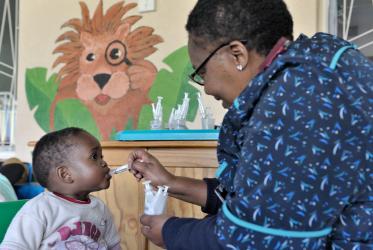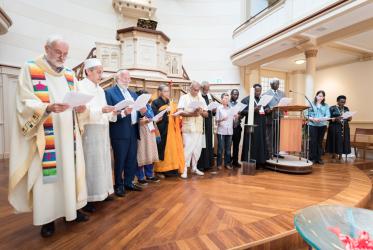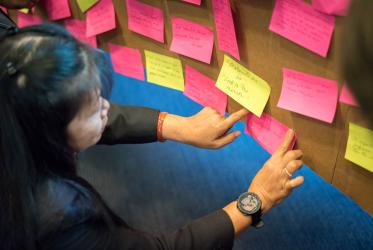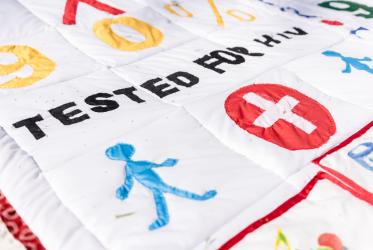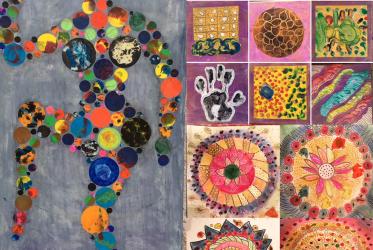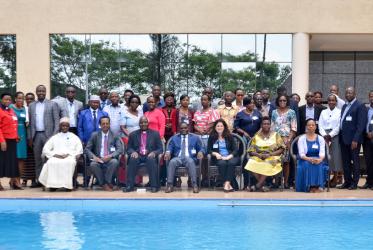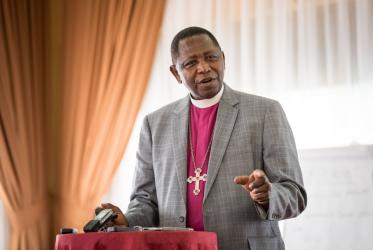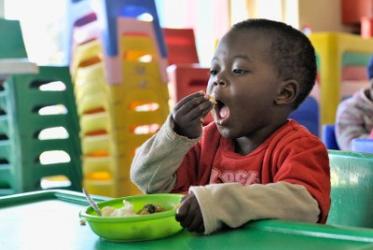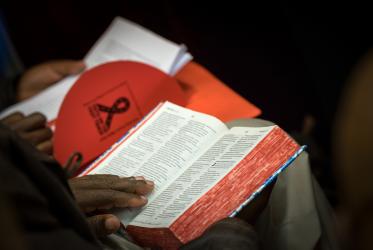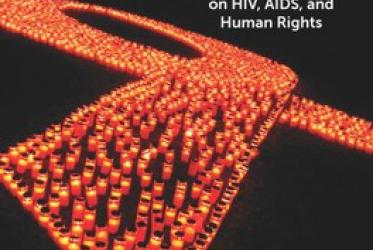Displaying 1 - 20 of 28
Dialogue addresses improving HIV testing and treatment for children
10 December 2018
WCC to ring with children’s voices across the world
16 November 2018
Working toward an AIDS-free generation
26 July 2018
Building bridges of faith in the HIV response
25 July 2018
Building Bridges in the global HIV response
25 July 2018
World AIDS Day 2017 - prayer service, exhibition, panel discussion
01 December 2017
Ecumenical Centre, Geneva
“Facing the storm of HIV, we can move together, be agents of change”
06 September 2017
Bible study gives hope as youth reflect on HIV
02 November 2016
Kenya: Voice of faith communities crucial in overcoming HIV
14 October 2016
WCC book featured in UN discussion on gender, religions and health
16 September 2016

